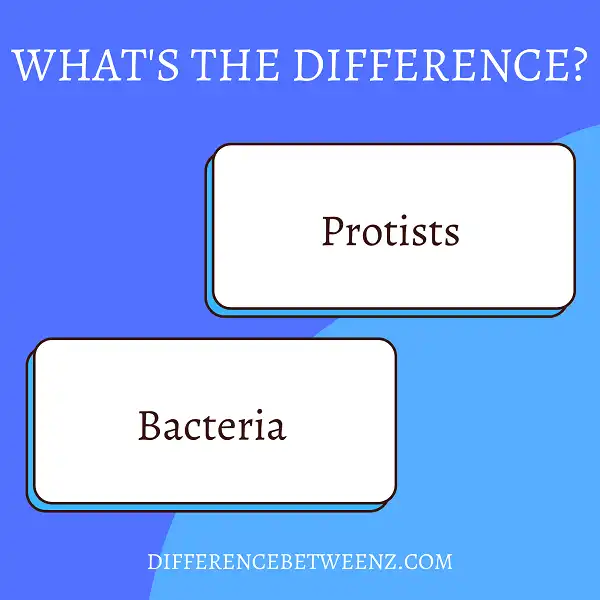There is a big difference between bacteria and protists. Bacteria are single-celled organisms that can cause disease, while protists are multi-cellular organisms that play an important role in the environment. Let’s take a closer look at these two types of organisms and see what makes them different.
What is Bacteria?
Bacteria are small, single-celled organisms that live in virtually every environment on Earth. Some types of bacteria are harmful, causing diseases like cholera and tuberculosis. However, many types of bacteria are beneficial, playing an important role in the earth’s ecosystem. Bacteria help to break down organic matter, recycle nutrients, and fix nitrogen in the soil. They also provide a food source for other organisms, and they help to decompose wastes. Bacteria are a vital part of the planet’s ecosystems, and they play an essential role in supporting life on Earth.
What are Protists?
Protists are single-celled or multi-cellular eukaryotic organisms. Eukaryotes are organisms whose cells have a nucleus enclosed by a membrane. Protists are classified based on their mode of nutrition and locomotion.
- There are three types of protists: photosynthetic, heterotrophic, and mixotrophic. Protists can be found in freshwater, marine, and damp terrestrial environments. The study of protists is called protistology.
- Protists were once considered to be plants because they are often immobile and rely on sunlight for energy. However, they are now classified as separate kingdoms due to their distinct characteristics.
- Protists are an important part of the food chain and play a role in the global carbon cycle. Many protists are also used in research due to their simple structure and versatile genetics.
Difference between Bacteria and Protists
Bacteria are single-celled organisms that lack a nucleus. They vary in shape, but most are spherical or rod-shaped.
- Bacteria are found in every environment on Earth, and they play an important role in decomposing organic matter. Many types of bacteria are beneficial to humans, but some can cause disease.
- Protists are single-celled or multi-celled organisms that have a nucleus. They are more complex than bacteria, and many protists are capable of movement.
- Protists are found in freshwater, salt water, and soil. Like bacteria, protists play an important role in decomposing organic matter.
Some protists can cause disease, but others are beneficial to humans. Protists are distinguished from bacteria by their complex structure and ability to move.
Conclusion
So what’s the difference between bacteria and protists? The main distinction is that bacteria are single-celled organisms while protists are multi-cellular. Beyond that, there are a few other distinctions we can make. Bacteria tend to be rod- or sphere-shaped, whereas protists come in a variety of shapes. Additionally, many bacteria lack cell walls, which gives them their gram-negative designation, while all protists have cell walls. Finally, different types of bacteria and protists consume different things – some eat other microbes while others consume organic matter like plants or animals.


